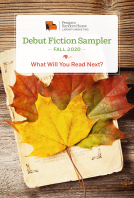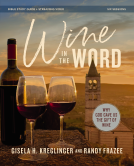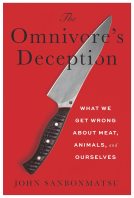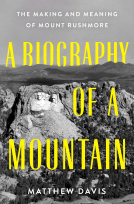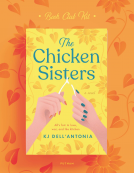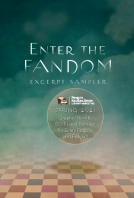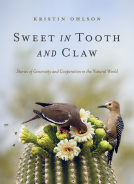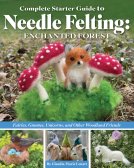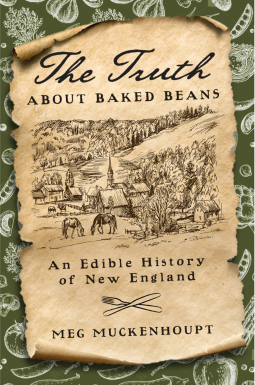
The Truth about Baked Beans
An Edible History of New England
by Meg Muckenhoupt
This title was previously available on NetGalley and is now archived.
Send NetGalley books directly to your Kindle or Kindle app
1
To read on a Kindle or Kindle app, please add kindle@netgalley.com as an approved email address to receive files in your Amazon account. Click here for step-by-step instructions.
2
Also find your Kindle email address within your Amazon account, and enter it here.
Pub Date Aug 25 2020 | Archive Date Jun 03 2021
NYU Press | Washington Mews Books/NYU Press
Talking about this book? Use #TheTruthaboutBakedBeans #NetGalley. More hashtag tips!
Description
Forages through New England’s most famous foods for the truth behind the region’s culinary myths
Meg Muckenhoupt begins with a simple question: When did Bostonians start making Boston Baked Beans? Storekeepers in Faneuil Hall and Duck Tour guides may tell you that the Pilgrims learned a recipe for beans with maple syrup and bear fat from Native Americans, but in fact, the recipe for Boston Baked Beans is the result of a conscious effort in the late nineteenth century to create New England foods. New England foods were selected and resourcefully reinvented from fanciful stories about what English colonists cooked prior to the American revolution—while pointedly ignoring the foods cooked by contemporary New Englanders, especially the large immigrant populations who were powering industry and taking over farms around the region.
The Truth about Baked Beans explores New England’s culinary myths and reality through some of the region’s most famous foods: baked beans, brown bread, clams, cod and lobster, maple syrup, pies, and Yankee pot roast. From 1870 to 1920, the idea of New England food was carefully constructed in magazines, newspapers, and cookbooks, often through fictitious and sometimes bizarre origin stories touted as time-honored American legends. This toothsome volume reveals the effort that went into the creation of these foods, and lets us begin to reclaim the culinary heritage of immigrant New England—the French Canadians, Irish, Italians, Portuguese, Polish, indigenous people, African-Americans, and other New Englanders whose culinary contributions were erased from this version of New England food. Complete with historic and contemporary recipes, The Truth about Baked Beans delves into the surprising history of this curious cuisine, explaining why and how “New England food” actually came to be.
Available Editions
| EDITION | Other Format |
| ISBN | 9781479882762 |
| PRICE | $32.00 (USD) |
| PAGES | 352 |
Links
Featured Reviews
 Rachel F, Reviewer
Rachel F, Reviewer
The Truth About Baked Beans by Meg Muckenhoupt is an excellent resource for not just a historical timeline of foods made and introduced within New England, but also a little mini history of the the origins of New Englanders as well.
To get an idea of what types of foods make up the palette of a “New Englander”, one has to fond out what types of Immigrants moved into the area to influence daily life,customs, and foods as well as the original inhabitants of Native American groups and cultures that add to that mix as well. The reader is then able to see how all of these cultures contributed to what types of foods eaten, how they were prepared, and how that was altered based on time, availability, wars, and transitions of taste.
Then, the author delves into a few foods that are thought of as “classic” New England (ex baked beans, oysters, lobster, chowder, whoopie pies, pumpkin) and describes how they were actually introduced, how they have evolved, and what misconceptions and myths are true vs false.
This book was so much more then I thought it would be, and I learned so much more then the true origins of one of my all-time favorite foods: brown sugar baked beans.
Excellent. 5/5 stars
Thank you NetGalley and New York University Press for this ARC and in return I am submitting my unbiased and voluntary review and opinion.
I am posting this review to my GR and Bookbub (as of 3/21/2020 no listing for this book has been created for BB and it will be posted when it has been created) accounts immediately and will post it to my Amazon and B&N accounts upon publication.
 Danielle L, Reviewer
Danielle L, Reviewer
A funny premise that actually ended up being well written with lots of information that I did not know before. This is for that person that loves the history of stuff like I do. Definitely recommend.
 Tara H, Librarian
Tara H, Librarian
I received an arc of this title from NetGalley for an honest review. I enjoy historical foodie books and this was a perfect read. So much history on those sweet little beans and history of food in the New England area.
I always claim that everything I know about history I picked up through reading books, and this book blends history and food, a winning combination.
Muckenhoupt takes the reader on a fascinating tour of each so-called New England food, breaking down the actual timeline of its presence in the New World. This simultaneously provides a very interesting window into New England history, while “debunking” everything we think we “know” about traditional Yankee fare. The included recipes range from comical to harrowing, and the mythos surrounding each “classic” meal is very eye-opening.
Without giving away too much of the analysis, like most food lore it all comes down to the inherent racism/xenophobia of diet culture. I was always confused (as a “foreigner” to Rhode Island) , as to why local foods were all of the “white mush” variety when most local families were of Italian, Portuguese, Greek or French descent. Now we know that New England Food (TM), like most diet cultures in this country, is really about preserving the pure-white body. (I also learned why pizza here in Rhode Island is good, but a comparative disappointment, when held up to the slices of my homeland in upstate New York, but I won't spoil the ending!)
If you like food and history this is a great read. I will be recommending it to both my library and our local historical society.
*This book was received from NetGalley as an advanced readers copy.
Muckenhoupt is right when she lists out all the foodstuffs I associate with New England; baked beans, lobster, cranberries. Except, maybe those aren't the foodstuffs that are regularly eaten there, in history, or now.
The Truth about Baked Beans cover the social history of New England food. Not just describing the roots of the food, but the communities and culture that made it. Which starts with defining, who precisely were New Englanders? They're not just the Caucasian pilgrims who had that first Thanksgiving feast (and even that feast wasn't probably what we think it was), but the Native Americans, immigrants, slaves, and other people who called New England their home throughout history. From there, it goes into specific foodstuffs themselves and the history behind them. Where they were served, why they were served, who was actually eating them. And in the middle of the whole book, adapted recipes were provided.
I always love reading about food history. That being said, some books have a tendency to get a bit dry even though it's over a fascinating subject. This book, unfortunately, fell prey to that a bit. The author is a good writer, and definitely has some wit judging by the comments thrown in here and there, but sometimes it felt like the book was meandering. Or repeating; there were several times I'd get to a section and think, "didn't I just read this?" Only to go back and re-read and discover there were differences in sentence construction, but the subject matter was repeated. But past that slower pace of the book, it was still full of cited, good information (there are numerous citations in the back, research was extensively done for this book).
This was well written and well researched. I think it might be a little much for someone looking for a light food history read, but if you're immersed in the subject and voraciously devouring anything about food and the social history around food, I don't think this is a book to be missed. A solid 3.5 stars from me.
Review by M. Reynard 2020
 Geoffrey S, Librarian
Geoffrey S, Librarian
As a born and raised Connecticuter (yes, that is apparently the official term for a CT resident), I have grown up aware of the strange shortage of food that was supposedly quintessential “New England” cuisine. A lot of supposedly New England foods like Vermont cheddar cheese, lobster (and a lot of regional seafood, to be honest) have long been too pricey to be anything more than once-in-a-while indulgences. Others, like baked beans or clam chowder, while more accessible are simply not items that are part of anyone’s everyday repast in this part of the United States.
So why this disconnect between so-called New England cuisine and what is actually eaten every day in this corner of the country? Well, finally I have some answers from “The Truth About Baked Beans.” In this informative history, Meg Muckenhoupt uses an abundance of primary resources to document how much of the New England cuisine that supposedly sustained tough, hardworking English-descended American farmers is in fact just an invented narrative built upon various foods not only chosen seemingly at random from pre-Revolution diets but were in no way unique to the American northeast. Meanwhile, the New England foods that actually exist, like the aforementioned cheddar or seafood are often shadows of former industries that have either moved elsewhere or been decimated by climate change or over-extraction.
As a result, reading about all the ways in which most of the cuisine of one’s home is not much more than myth made this something of a sobering read. However, “The Truth ABout Baked Beans” does much more than historical myth-busting. Besides tearing down culinary traditions that never really were, Muckenhoupt also takes time to point out the regional culinary traditions that actually are. Early on, she is quick to remind that New England has as rich an immigrant past as does anywhere else in the nation, with large segments from the region’s population originally hailing (among other places) Italy, Portugal, Francophone Canada, Poland, and more recently from Latin America. These peoples, in turn, have imported their own food traditions that have long been part of everyday diets in the area, contributing heavily to the actual existent culinary history that in recent years appears to be getting increasing overdue recognition after being long overshadowed by mere (and frankly quite bland) myth.
Besides being a fascinating food history in general, this is definitely a read that I plan on recommending heavily to fellow New Englanders whenever possible. Muckenhoupt provides an immense deal of much-appreciated evidence-based clarification about what the food of the northeast is most definitely not, and helpful pointers towards what it actually is.
Readers who liked this book also liked:
Gisela H. Kreglinger; Randy Frazee
Christian, Cooking, Food & Wine, Religion & Spirituality
John Sanbonmatsu
Cooking, Food & Wine, Health, Mind & Body, Nonfiction (Adult)
